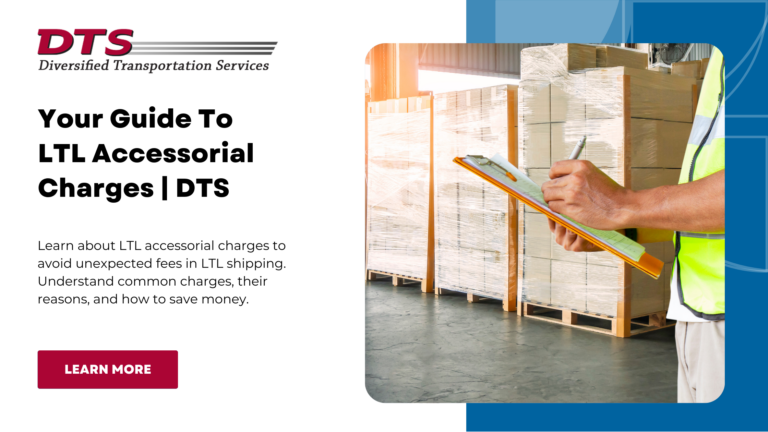
Less-than-truckload shipping offers a great alternative for businesses looking to send out smaller shipments, but if you’re shipping LTL, you might run into LTL accessorial charges.
Nobody wants to be caught off guard by fees they weren’t expecting, so we’re here to tell you all about these charges, including some of the common ones you might encounter.
Unexpected additional charges can be frustrating, but they’re common thanks to the unpredictable nature of the logistics industry. This is especially true when using LTL shipping, as carriers rely on a smooth journey to keep their costs down and maintain their schedule.
Carriers use LTL accessorial charges to help recoup losses from unexpected delays. They do this by charging fees for extra services outside of the standard pick-up and delivery process. Carriers use historical operational data to determine exactly how much a delay will cost them and how much to charge to cover it.
One of the main reasons LTL carriers implement accessorial charges is to encourage alignment between them and shippers. LTL carriers need to be able to work efficiently to manage multiple loads, which means shippers should do their best to meet any given requirements.
If your business is new to LTL shipping, knowing what types of accessorial charges to watch out for can help you save money. Just remember that every LTL carrier will set different accessorial charges, which will vary depending on the type of delay they face.
FTL carriers may also implement accessorial charges when they are faced with additional tasks during the shipping process, however it is much more common with LTL shipping. This is because FTL carriers do not have to manage multiple deliveries with one truckload, so they are not as concerned with delays throwing off their delivery estimates.
There are several reasons an LTL carrier may implement accessorial charges. Each reason will come with a different price depending on its potential impact on their schedule. The most common LTL accessorial charges include:
There is a lot to consider when using LTL shipping and many reasons why a business may face LTL accessorial charges. This is why we have a wide range of articles on the DTS blog to help you understand LTL shipping before you enter negotiations.
Plus, partnering with shipping professionals like DTS can help businesses reduce the risk of facing accessorial charges. Contact us today to see how we can help.
Whether you're a company looking to improve one facet of your supply chain, your entire supply chain, or simply looking for a transportation and logistics consultation, we can help.